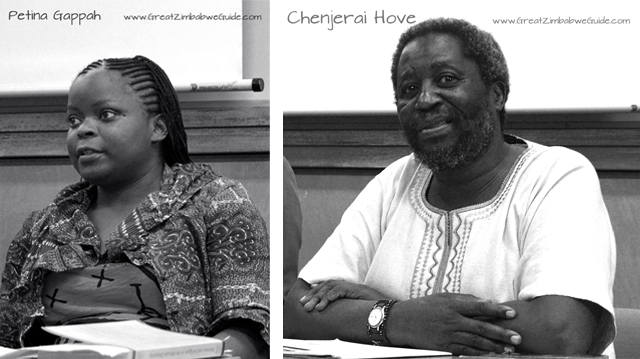 I have also published this article on TheSouthAfrican.com here.
I have also published this article on TheSouthAfrican.com here.
Living in Oxford means that I sometimes feel disconnected from what’s happening in Zimbabwe – but not this weekend. On Saturday there was a Zimbabwean event happening right here in Oxford, which I was able to attend – hooray! I listened to key players in Zimbabwe’s cultural landscape discuss important issues about the role of art, literature, religion and film in Zimbabwe’s future.
The Britain Zimbabwe Society’s 2013 Research Day’s theme was “Culture without Borders”, and it took place in St Anthony’s College, Oxford. The chair of BZS, Knox Chitiyo, explained that this theme was chosen because culture and the arts can be a significant path to development both in Zimbabwe and the diaspora.
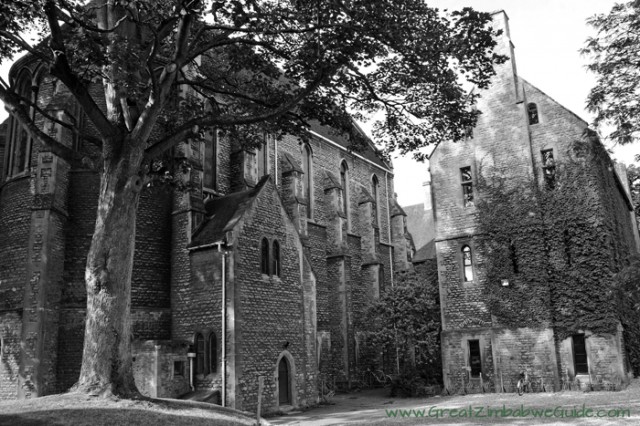 St Anthony’s College, Oxford
St Anthony’s College, Oxford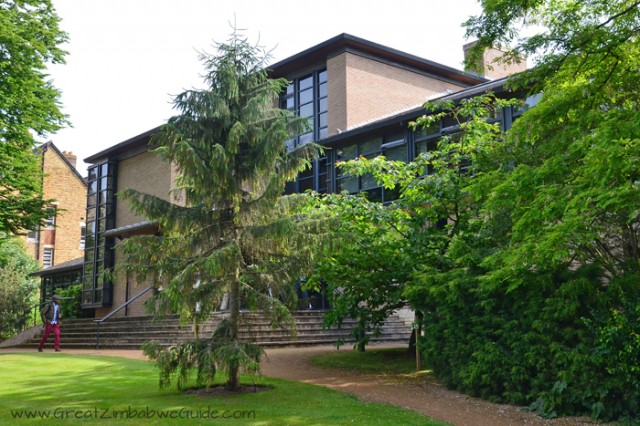
Actress Chipo Chung and editor Geoff Davies, who are part of a Commonwealth Organisations Committee on Zimbabwe, discussed ways of re-engaging with Zimbabwe through Arts and Culture. Chipo said that the Arts are an important way to articulate important issues such as Zimbabwean identity – and that the wounds of Zimbabwe’s past can only be healed if spoken about openly.
They gave examples of cultural bodies like HIFA, the Book Cafe, Gallery Delta, Weaver Press, Dance Trust Zimbabwe, and Harare Library, which are only just keeping their heads above water thanks to support from both the international community and corporate sponsors in Zimbabwe.
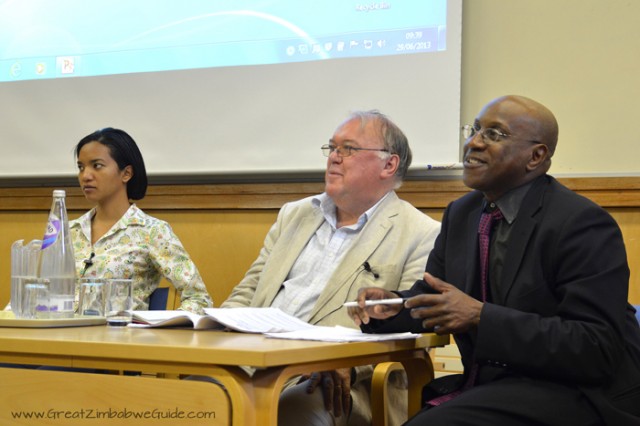
Questions from guests were invited, and an energetic discussion followed on a range of issues: The contribution of Arts to the economy of Zimbabwe; The issue of fear and censorship regarding artistic expression; The tensions between traditional and contemporary culture; The work that specific Zimbabweans have done to help fund the Arts; The call for more people and businesses on the ground to follow suit; The bridge between arts for the elite and arts for the populous; The hurdles of Zimbabwe no longer being part of the Commonwealth; and the need to be independent from donor funding.
Then came two talks about literature: Award-winning writer Chenjerai Hove spoke about the differences between literary time and political time. Drew Shaw, from the National University of Science and Technology (NUST) in Bulawayo, examined books published during 2009 and 2013 (the period of the GNU). A particular recommendation was The Unlikely Genius of Dr Cuthbert Kambazuma, which is groundbreaking in its blend of “white” and “black” literature. The growing trend, it seems, is towards stories about individual journeys and away from grand narratives.
I could only make the first part of the event, and had to leave as Petina Gappah’s talk began, but it sounds like the day continued in strength, with the following discussions:
- Another award-winning writer, Petina Gappah, spoke about religion in present-day Zimbabwe, particularly her recent experience with Prophet Emmanuel Makandiwa – from her essay on Preaching prosperity in Zimbabwe.
- Professor Isabel Mukonyora from University of Kentucky: ‘Trans-national aspects of Zimbabwean prophetic movements’.
- Olga Sicilia from University of Vienna: ´Chiefly successions and legitimacies: A case study´.
- Anne Charnock, artist and writer: ‘The Rediscovery of 600 Cyrene Paintings: An Opportunity to Reassess the Tradition’
- Uriel Orlow, artist, University of Westminster: ‘Thinking archives – questioning identity’.
- Kathleen Palmer, Senior Curator, Imperial War Museum: ‘Sharing histories – artists in the archives’.
- Video presentations from the 2013 Venice Biennale, with Raphael Chukukwa and Doreen Sibanda from the National Gallery, Harare, and Zimbabwean artist Berry Bickle.
- Ingrid Sinclair and Anopa Makaka, both film makers: Discussion on the influence of the history of Zimbabwean cinema from the 1980s to the 21st century. Hosted by Zimmedia, Afrika Eye Film Festival and Africa in Motion Film Festival.
- Post-research day party: Linos Magaya and Zimbaremabwe, Shona mbira band.
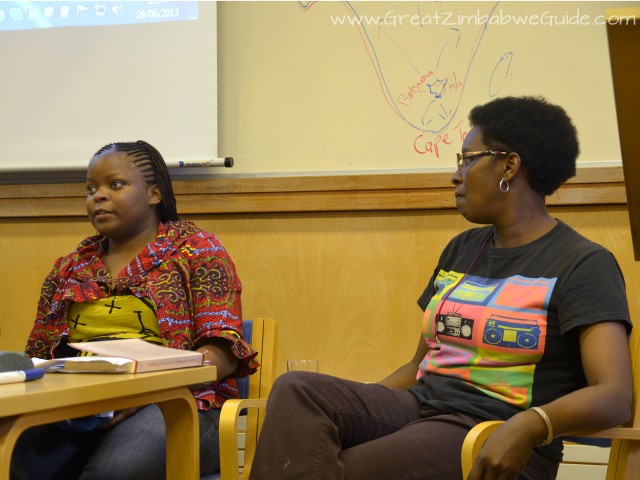
Also see:


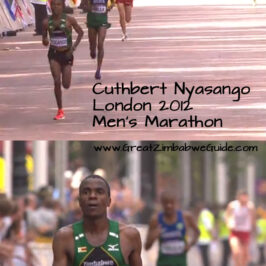
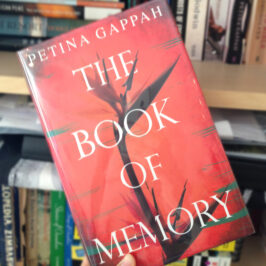

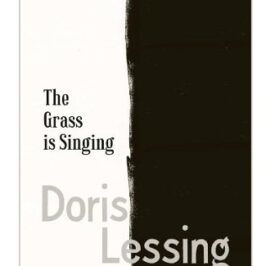
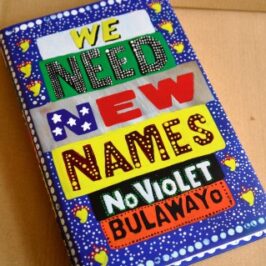

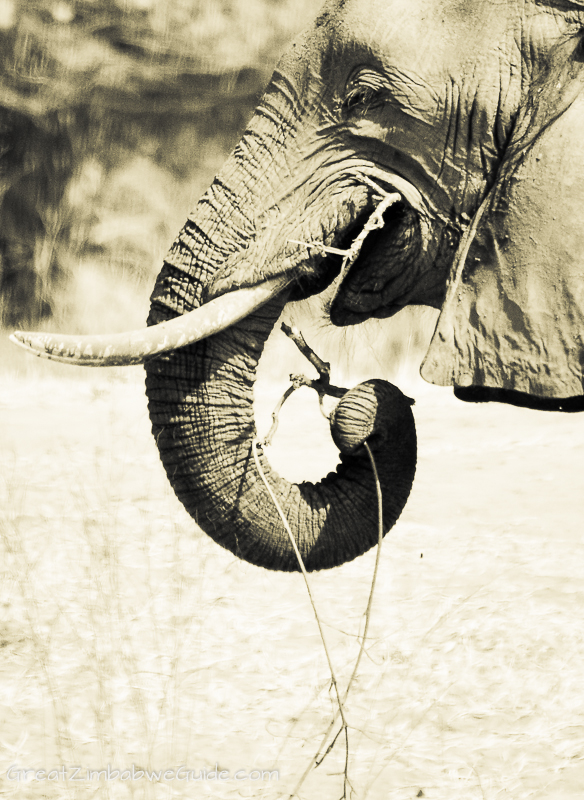
Leave a Reply